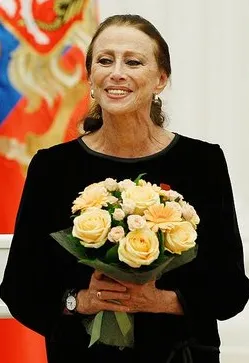Name: Arif Wazir
Nationality: Pakistani
Born: 1982
Political Affiliation: Leader of the Pashtun Tahafuz Movement
Known For: Advocating for the rights of the Pashtun people
Years Active: 2020 - Present
2020 – Arif Wazir, Pakistani politician, leader of the Pashtun Tahafuz Movement (b. 1982)
Early Life and Background
Arif Wazir was born in South Waziristan, a region in Pakistan that has been significantly affected by conflict and military operations. Growing up in this tumultuous environment, he developed a deep understanding of the struggles faced by his community. Wazir’s education and experiences in South Waziristan shaped his vision for a more equitable society where Pashtuns could thrive without fear of oppression.
The Pashtun Tahafuz Movement
In 2018, Arif Wazir emerged as a leading voice in the PTM, a peaceful movement advocating for the rights of the Pashtun population in Pakistan. The PTM called for an end to extrajudicial killings, enforced disappearances, and the misuse of military authority in the region. Wazir played a vital role in mobilizing people for protests and raising awareness about the injustices faced by Pashtuns.
Political Activism and Challenges
As an outspoken advocate, Wazir faced numerous challenges, including government crackdowns and threats from extremist groups. His commitment to non-violence and dialogue set him apart in a region often fraught with militancy. He emphasized the need for peace and stability, urging both the government and the military to recognize the rights and aspirations of the Pashtun people.
Legacy and Impact
Wazir’s activism left a lasting impact on the PTM and the broader struggle for human rights in Pakistan. His murder on May 15, 2020, was a profound loss for his community and supporters worldwide. However, his legacy continues to inspire young activists and leaders who seek to follow in his footsteps, advocating for justice and equality.
The Rise and Legacy of Arif Wazir: A Voice for the Pashtun People
In the heart of Pakistan’s North Waziristan, a region fraught with political turmoil and a long history of conflict, Arif Wazir emerged as a beacon of hope for many. Born in 1982, his journey wasn’t marked by privilege or ease; rather, it was shaped by the struggles that plagued his community. From an early age, he witnessed the hardships faced by the Pashtun people communities torn apart by war, displacement, and injustice. This backdrop forged a resilient spirit within him.
As a young man in 2018, Arif took on an unexpected mantle when he became one of the prominent leaders of the Pashtun Tahafuz Movement (PTM), which aimed to advocate for human rights and social justice for the marginalized Pashtun population. The PTM was not just a political movement; it symbolized years of suppressed voices crying out for recognition and equality.
However, stepping into this role did not come without risks. In fact, this decision thrust him into a world filled with perilous challenges. He became an outspoken critic against military operations in tribal areas which had displaced thousands from their homes. His articulate speeches resonated deeply with those who felt forgotten a powerful factor that contributed to his rapid rise within activist circles.
Despite facing threats from various factions opposed to PTM’s agenda many viewed their advocacy as undermining state authority Wazir’s resolve only strengthened over time. He navigated through public gatherings while wearing his heart on his sleeve; indeed, who could forget his passionate declarations demanding accountability from those in power? These moments captured not only media attention but also solidified him as a formidable figure representing ordinary people’s grievances.
Perhaps one can argue that what set Wazir apart was not merely his leadership qualities but rather his ability to connect emotionally with crowds during rallies across Khyber Pakhtunkhwa and beyond. His words painted vivid images of suffering endured by families caught amidst gunfire or living under fear due to enforced disappearances a reflection too painful yet essential to ignore.
In March 2020 came one fateful day that would change everything: during peaceful protests advocating for basic human rights in Islamabad the capital city Wazir was arrested alongside fellow activists. Ironically enough, this act aimed at silencing dissent only fueled further public outrage against authorities perceived as oppressive tyrants unwilling to confront issues plaguing society today.
This imprisonment drew international attention toward Pakistan's treatment toward civil rights activists a crucial turning point highlighting how deeply rooted systemic injustices can spark global conversations about democracy! As news spread like wildfire through social media platforms worldwide one fan commented during interviews conducted outside courts: “They cannot silence us forever!” Indeed true words were spoken because while physically confined behind bars; psychologically Arif remained free an undying flame ignited within communities striving towards liberation!
The aftermath left many speculating about what would happen next... Was he destined merely to become another martyr? Or could Wazir emerge stronger than before upon eventual release? These questions lingered heavily amidst supporters waiting eagerly outside prison gates hoping against hope he might continue leading them forward after release!
This internal debate reflected broader societal anxieties regarding freedom fighters becoming symbols rather than actionable leaders capable enough inspiring movements without falling prey victimization systems set up against them so easily… Who knows how long until such realities would continue playing out across similar struggles globally?
While incarcerated during critical times throughout early COVID-19 pandemic lockdowns which limited mobilization efforts entirely the movement took on new dimensions via digital platforms enabling voices unheard resonate loudly! Activists strategized tirelessly online gaining support rapidly snowballing across borders even transcending ethnic divides uniting folks around core principles justice!
This shift perhaps solidified belief among participants: they were partaking greater fight involving everyone wanting access equality freedoms promised consistently governments yet perpetually denied individuals like themselves oppressed minorities historically marginalized due race religion culture intersectionality aspects intertwining complexities making journeys arduous yet compelling simultaneously!
A Tragic End
The narrative turned somber when tragedy struck on May 1st, 2020 news broke suddenly revealing devastating information regarding Arif's fate after being brutally attacked while still imprisoned under dubious circumstances… Eyewitness accounts told harrowing tales describing scenes reminiscent oppressive regimes targeting dissenters historically it sent shockwaves reverberating throughout both local communities battling systemic issues exacerbated decades past alongside transnational solidarity growing exponentially since inception PTM founded mere two years prior!













